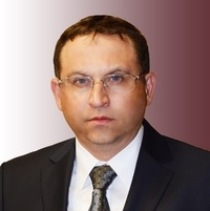Ru
|
Eng
Expert: Economic reasons underpin Hungary’s nuclear program
06.02.2017

Russia and Hungary have agreed to intensify joint work in the field of peaceful use of nuclear energy, Russian President Vladimir Putin said after the talks with Hungarian Prime Minister Viktor Orban. According to the Russian president, Russia attaches great importance to the project to build new units at the Paks nuclear power plant. This plant has been long in operation accounting for almost 40% of the electricity production in Hungary. Commissioning of additional capacity will double the electricity production, satisfying the demand for electricity needed to launch new manufacturing facilities in Hungary. For his part, Viktor Orban said that the construction of new Paks units will begin in 2018.
According to Ivan Andriyevsky, Chairman of the Board of Directors of 2K Engineering Company, Hungary NPP Paks was built by Soviet specialists, like virtually all nuclear generating facilities in Eastern Europe, BelTA informs. Russia and Hungary have been cooperating in the nuclear power sector for more than 50 years. The two countries continued their cooperation even at a time when Eastern Europe was going through a mass shutdown of nuclear power plants. Hungary’s decision to keep its Paks nuclear power plant was driven by economic reasons rather than political considerations, relying on long-standing mutually beneficial partnership with the Russian nuclear power sector. Today, Hungary hopes to advance these relations further, and intends to strengthen its energy security.
Paks secures 40% of energy generated in Hungary. The construction of two additional energy units will help increase this share. Its own cheap energy will serve as an additional driver for the country’s economic growth. In terms of the GDP growth since the pre-crisis 2007, Hungary is now almost at the bottom of the list of the Eastern Europe countries, with only Slovenia, Estonia, Latvia, and Croatia placed further below. Additional energy capacities will help improve the investment appeal of the region and help improve the economic potential of Hungary. This is why Budapest continues working on its Paks program.
Hungary is waiting for the final fifth decision of the European Union to give a go-ahead to the Paks project. All the key issues have already been settled. Russian reactors are fully compliant with the established safety standards. VVER-1200 reactors to be installed at Paks are a third generation technology solution. They satisfy all European and international nuclear plant safety standards developed after the Fukushima Daiichi disaster. The European Union is currently reviewing the compliance of the Paks project with the EU competition law. The project will get a green light once the review process is over. Given this fact, it is possible that preparatory works will begin in 2017, and the construction will start in 2018.
ANALYTICS
30.08.2023
21.03.2023
30.08.2021
02.07.2021
23.06.2021
10.06.2021
04.06.2021
03.06.2021
20.05.2021
15.05.2021













